Toyota Paseo: What It's Like To Run This Forgotten 90s Coupe
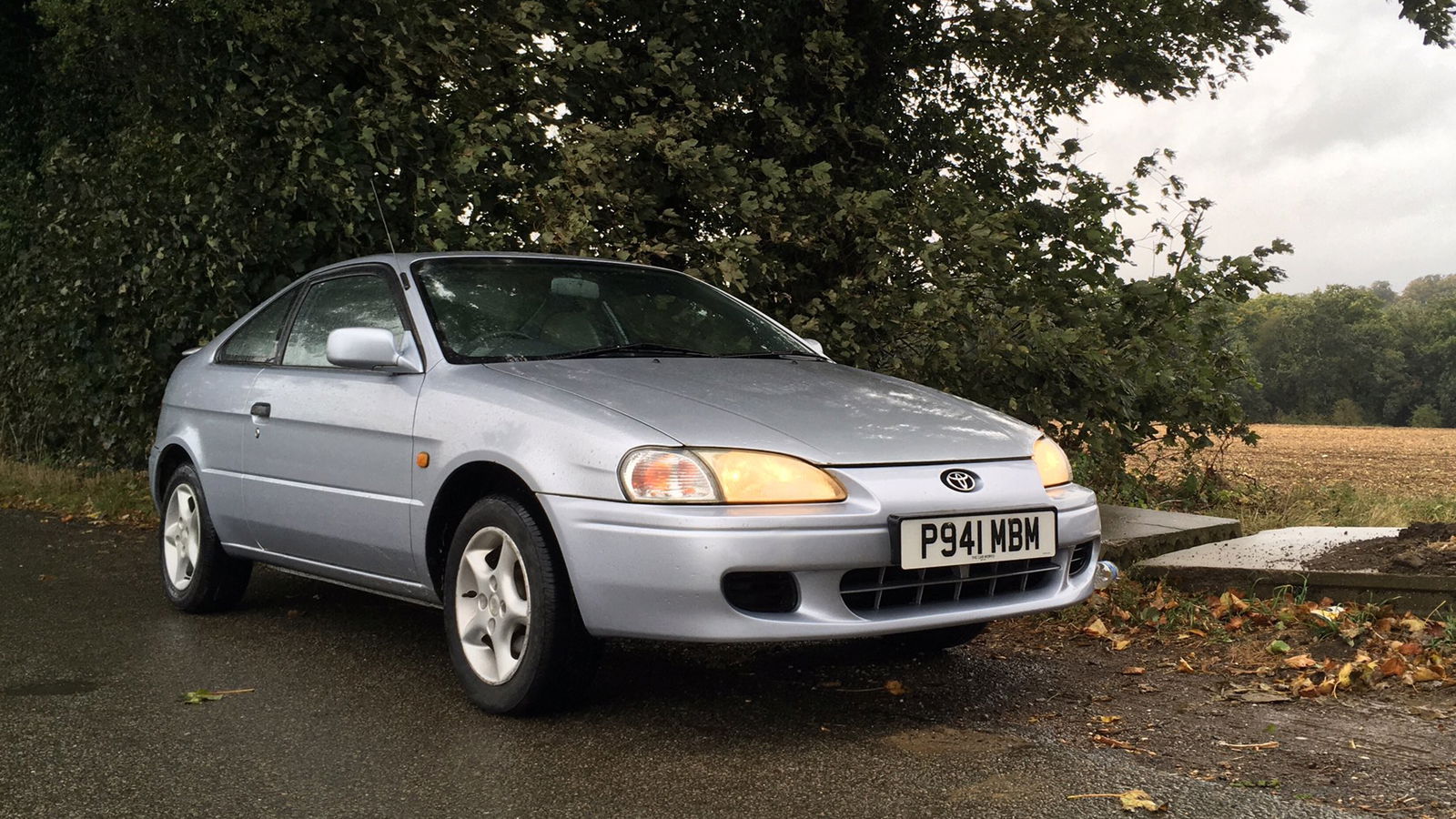
“It was free”. Three words I feel obligated to utter whenever I talk about the 1996 Toyota Paseo that’s been serving as my daily driver for the last three months. It’s not that I’m embarrassed to own Toyota’s forgotten 1990s coupe, but so obscure is the wedge-shaped economy car to most people, and so broad the list of alternatives, that it’s easier just starting with the factor that everyone understands. After all, who’d turn down a free car?
I wasn’t looking for a Paseo. Not many people do. Sure, as a bit of a fan of unloved vehicles the idea had crossed my mind in the past. It wasn’t so long ago you could find them for a few hundred quid, their value languishing in that lost valley between ‘used car’ and ‘appreciating classic’. I’d noticed values in the UK beginning to creep up over the last few years, perhaps spurred on by the growing interest in more familiar Japanese nameplates from the 90s, but I’d never quite got around to finding one to satiate my curiosity.
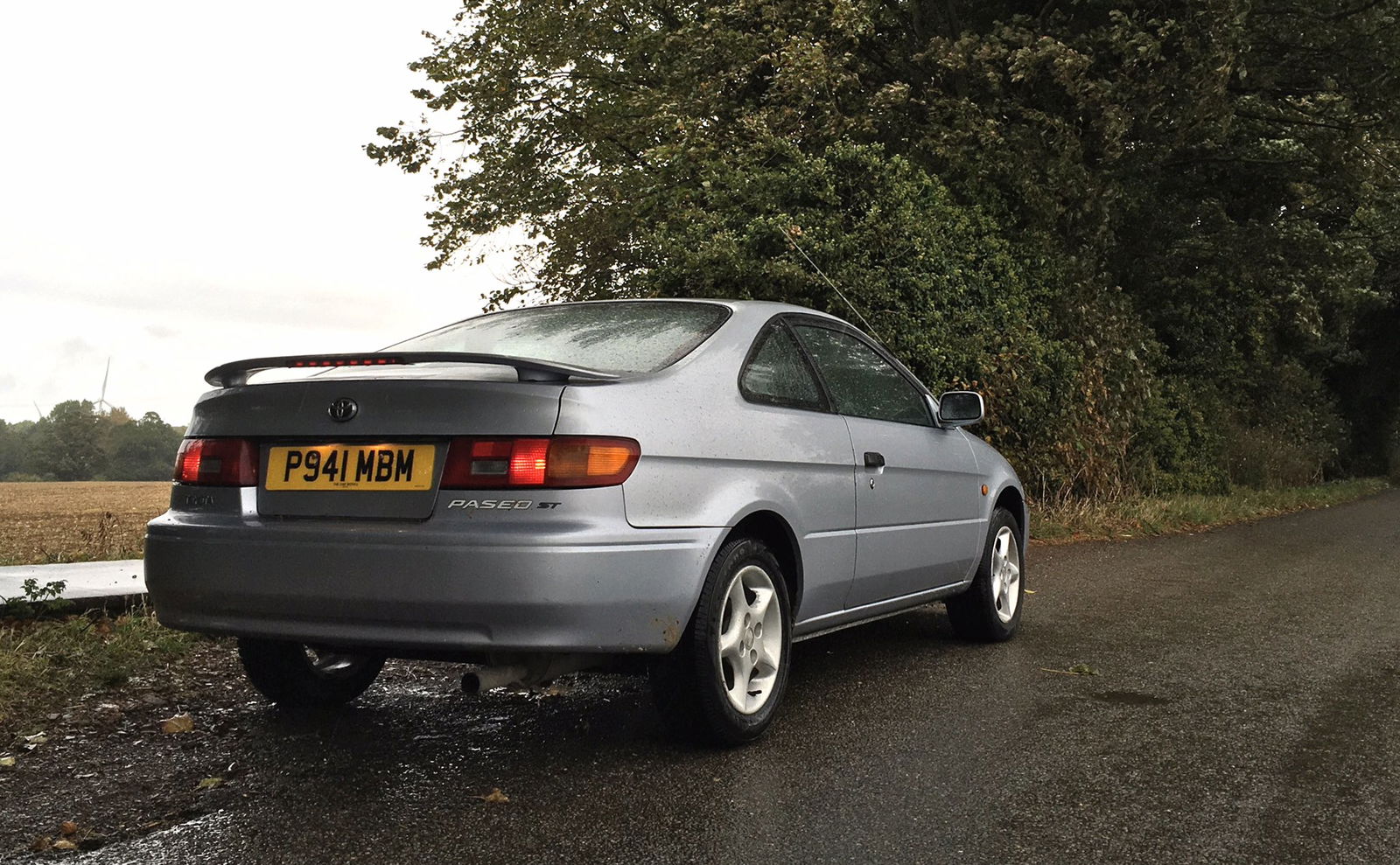
This time I was being sensible, anyway. Having lost my job at the tail end of July (thanks, Covid), and therefore access to the steady stream of press vehicles and long-term testers that met my needs for an everyday car, I’d spent a few months rolling around in my weekend toy, a 1998 Peugeot 106 Rallye. It coped admirably, but if you’re at all familiar with Peugeot’s stripped-out hot hatch you’ll be aware that it’s not the most relaxing of vehicles to daily drive. Minimal sound deadening, no power assistance, firm ride, no airbags… you get the idea.
The plan was to spend three or four grand on something I could use every day and in all weathers, park on the street without fear of it going missing (the Peugeot occupies my sole garage spot), not use too much fuel (40mpg and up was the goal), not leave my cranium buzzing after a long drive, and broadly feel more modern and less stressful to drive on the regular.
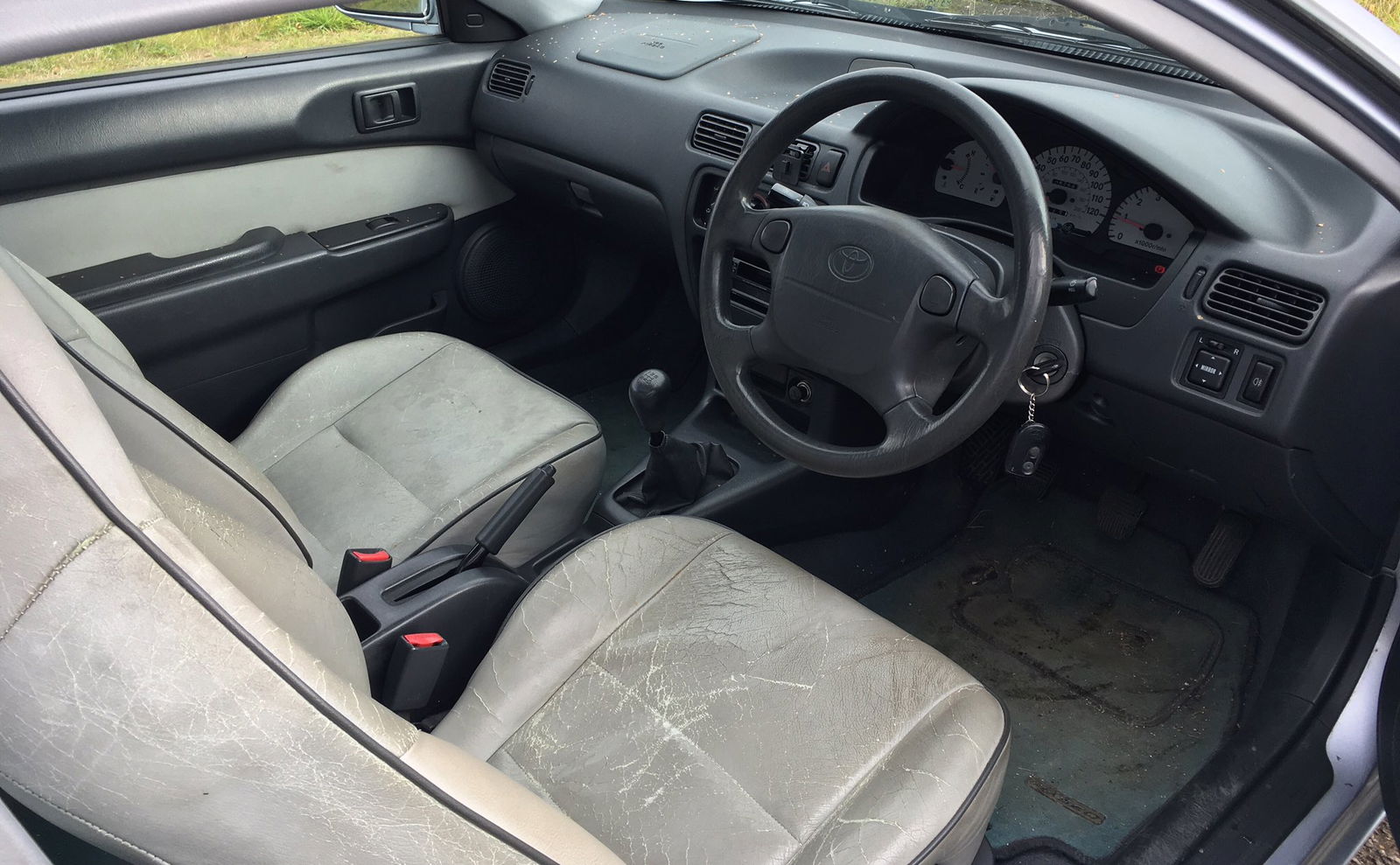
At the same time I’m allergic to “normal” cars, so I immediately ruled out the most predictable options – Golfs, Foci, A3s. Being a bit of a nerd for weird Japanese stuff, the first few candidates were a Nissan Cube and Daihatsu Materia, and the inclusion of those prompted me to drop a Kia Soul on the list, having tested one years ago and enjoyed its company. Further hunting around in this boxy marketplace brought up the Toyota Urban Cruiser (those of you in America will know it as the Scion xD), which has the most embarrassing name since the Ford Probe. But, it was sold here in diesel, manual, all-wheel drive form, which seemed just the ticket for a winter hack.
And then, out of the blue, came news of the Paseo. It was free, said the man from Porsche’s PR team who knew I was hunting for a car, being offered by a friend with no other stipulation than a donation to his chosen charity should I be interested in taking it. It hadn’t moved in a while, so my only request in return was that he put it through an MOT, and when it passed with no advisories (it’s an old Toyota, of course it did) it seemed like a no-brainer.
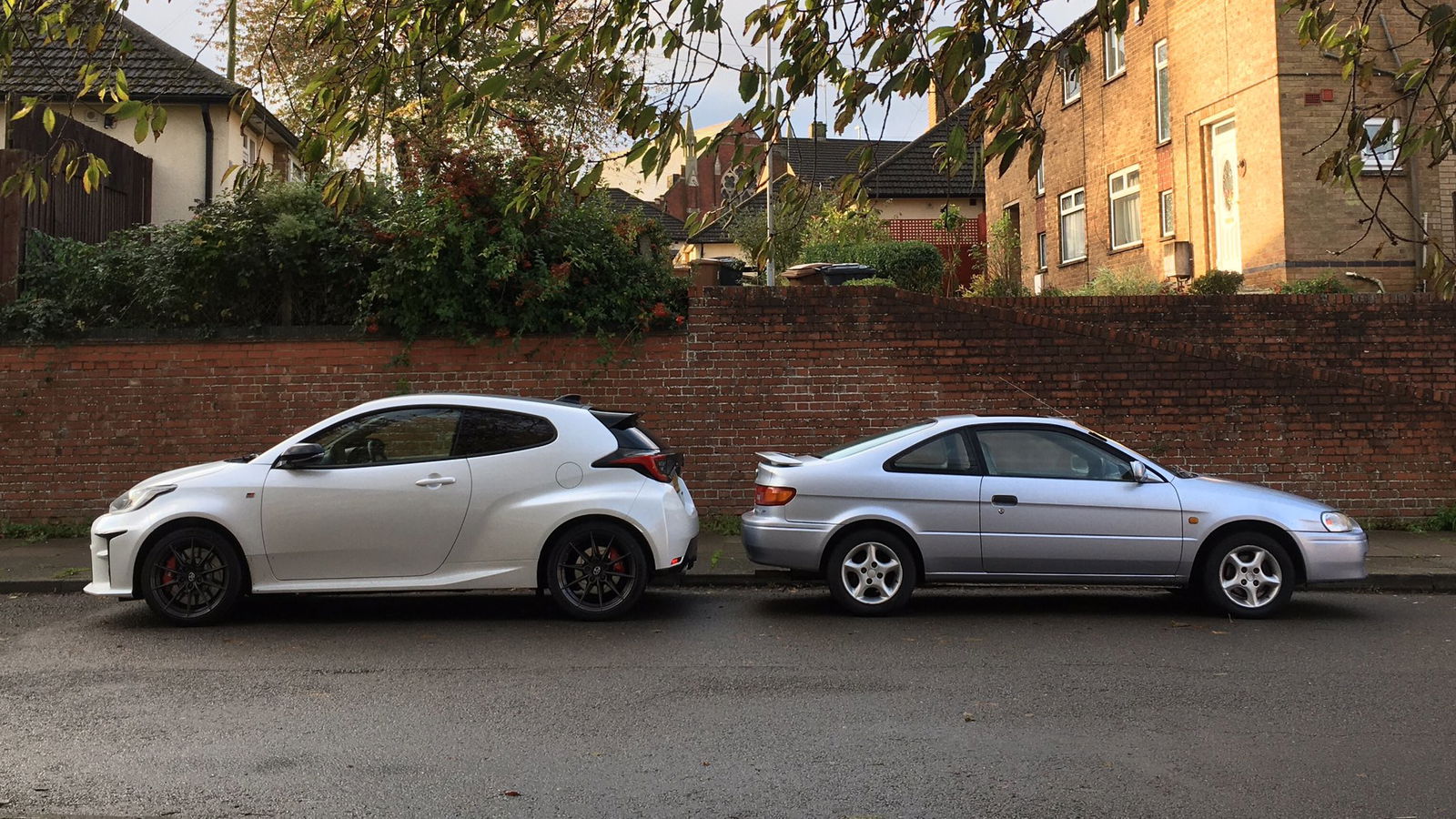
I couldn’t quite shake off the nerves come collection day. The car itself seemed fine – a bit mossy and a little grubby within, with a rusty dent in the passenger-side door – but it’s difficult to shake the feeling that a free car might just let you down on the drive home. At that point I was into it for no more than my charity donation so if it did expire I’d have thought little of just having it towed to the nearest scrapyard, but in actuality the drive home was blissfully straightforward.
The friend who’d help me collect it reported the Toyota looked amusingly tiny on the road amongst modern vehicles, but from behind the wheel it felt like a limousine compared to the Peugeot – quieter, softer-riding, more spacious, and fingertip-light to steer thanks to the novelty of power assistance. It’s no sports car, but feels nimble (it weighs sub-1000kg), has a snappy gearshift, and I even quite like the way it looks – subtle, but not unattractive.
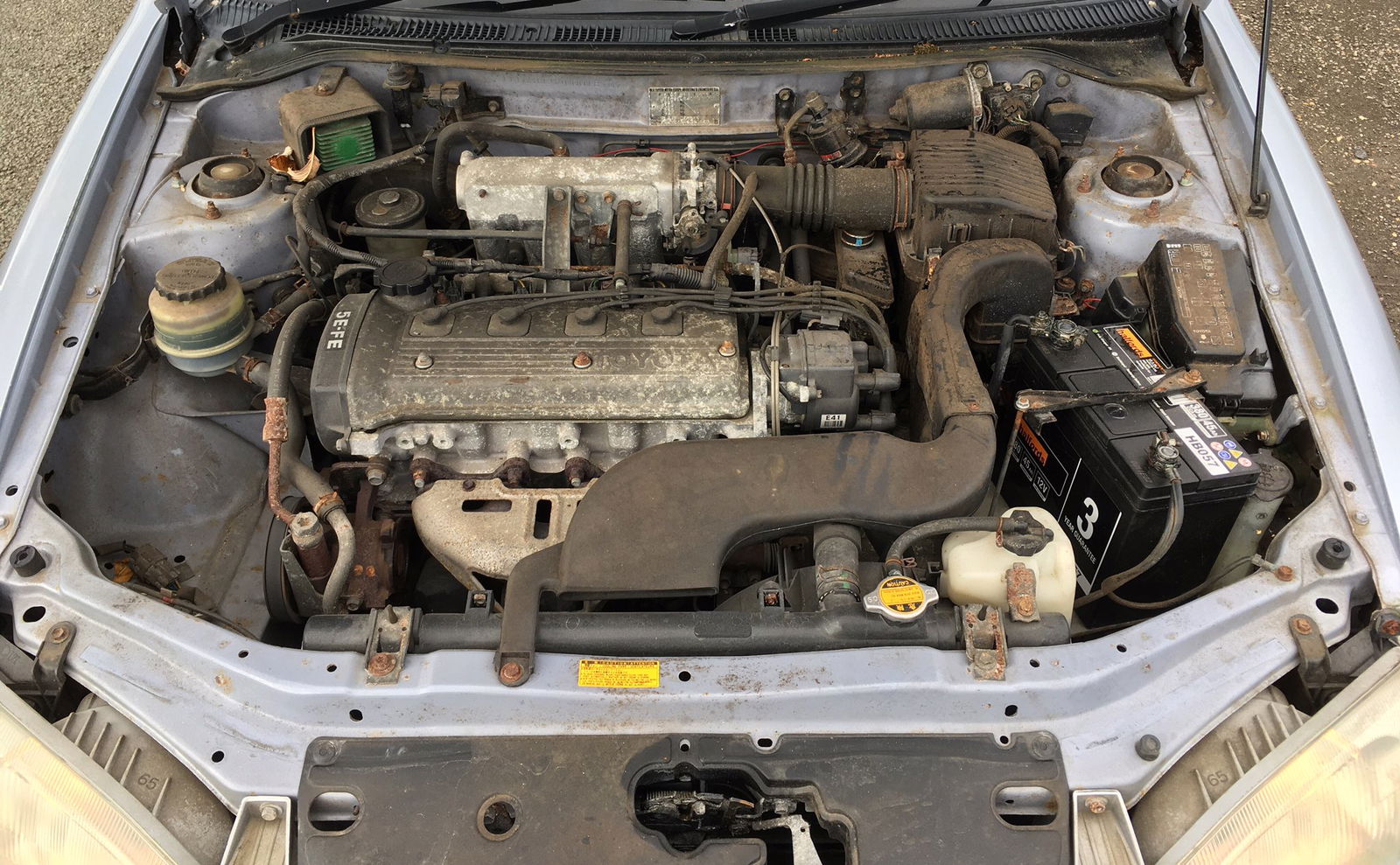
It clearly wasn’t perfect, with a speed wobble above about 65mph, and a lethargy that partly stemmed from my Peugeot being about three seconds quicker to 60, and partly from probably years without any kind of servicing. A few subsequent drives revealed patchy levels of grip from the mismatched tyres, but otherwise the car imperceptibly filtered into use as my daily driver from that moment on and has been almost as inexpensive to run as it was to not-buy.
For my own amusement, I’ve been keeping track of every single penny I spend on the car, excluding fuel, though I do keep a record of every tank and can report that after around 1100 miles of use it’s averaged 46mpg, with one tank reaching nearly 51mpg. Otherwise, insurance and tax aside, I’ve spent a grand total of £390 and 36 pence. A full £270 of that was the charity donation that “bought” it in the first place. £72.71 went on an air filter, oil filter, spark plugs, oil and transmission fluids, which in absence of the space or equipment at home, a friend generously offered to carry out in her workshop.
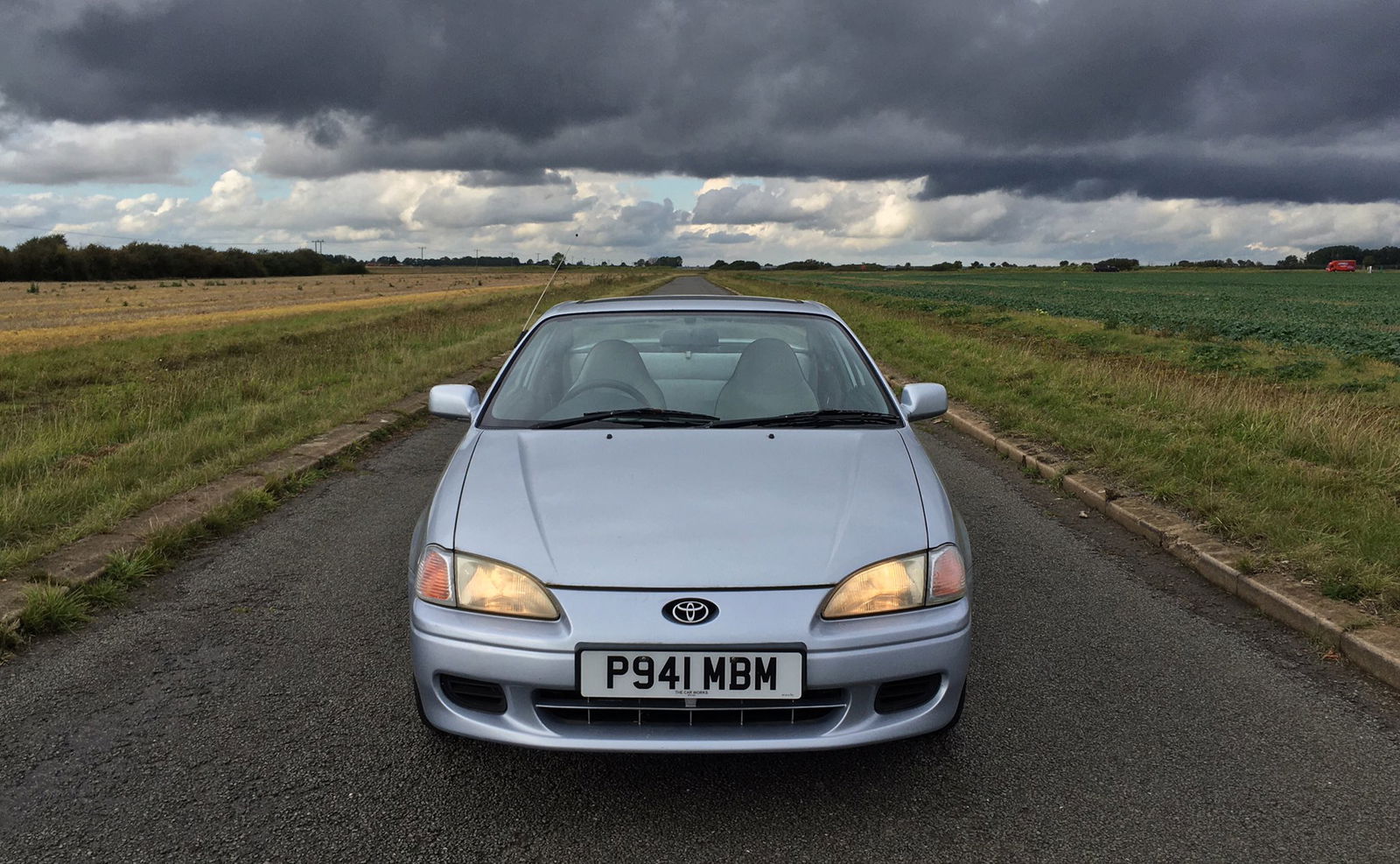
Another £7.85 went on the correct air filter for the car, since the car parts company I’d used initially supplied the wrong one. I spent £15.95 on a headlight restoration kit to de-cloud the front lamps, which worked a treat. A set of Osram H4 bulbs cost £17.90, to further improve night vision, and because I’m an oaf and dropped one of the indicator units when I was cleaning around the front of the car and the lens split from the housing, some Loctite silicone sealer came to the rescue for £5.95.
And that’s it. In future a set of decent tyres will add to that tally, as will a few products to really tidy the interior with its grubby, but also very rare dealer-fit leather seats. Free cars are never truly free in that respect, but the current sub-£400 tally is still considerably less than I’ve ever spent on any other car. The best bit though is that I’m rather warming to Toyota’s budget 90s coupe. Maybe before long I’ll be able to justify my ownership without having to tell people that I got it for free.
Toyota Paseo Specs
Engine: ‘5E-FE’ 1.6-litre naturally-aspirated inline-four
Power: 89bhp
0-62mph: 11.2 seconds
Top speed: 115mph
Price now: £1000 - 2000

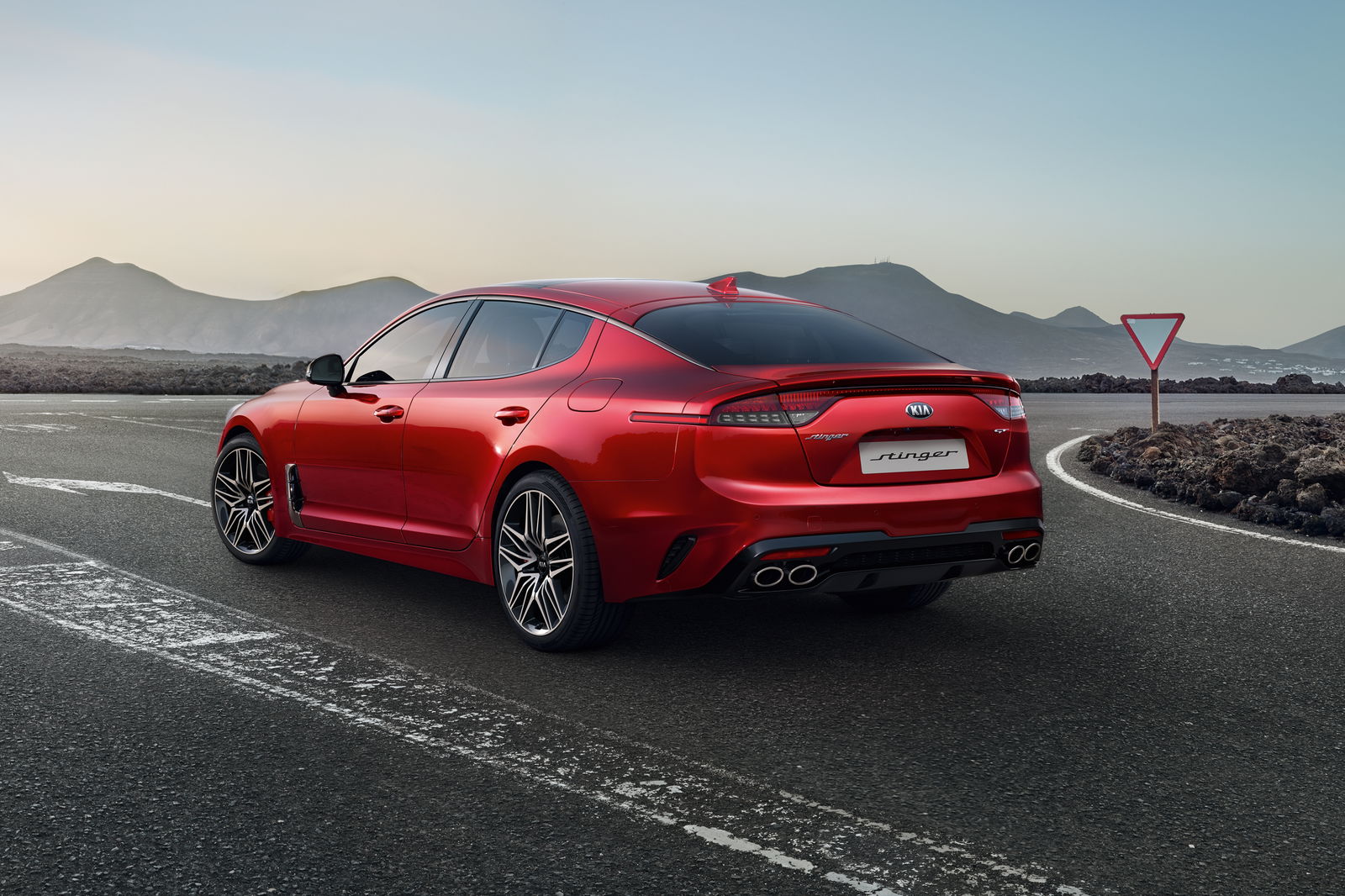



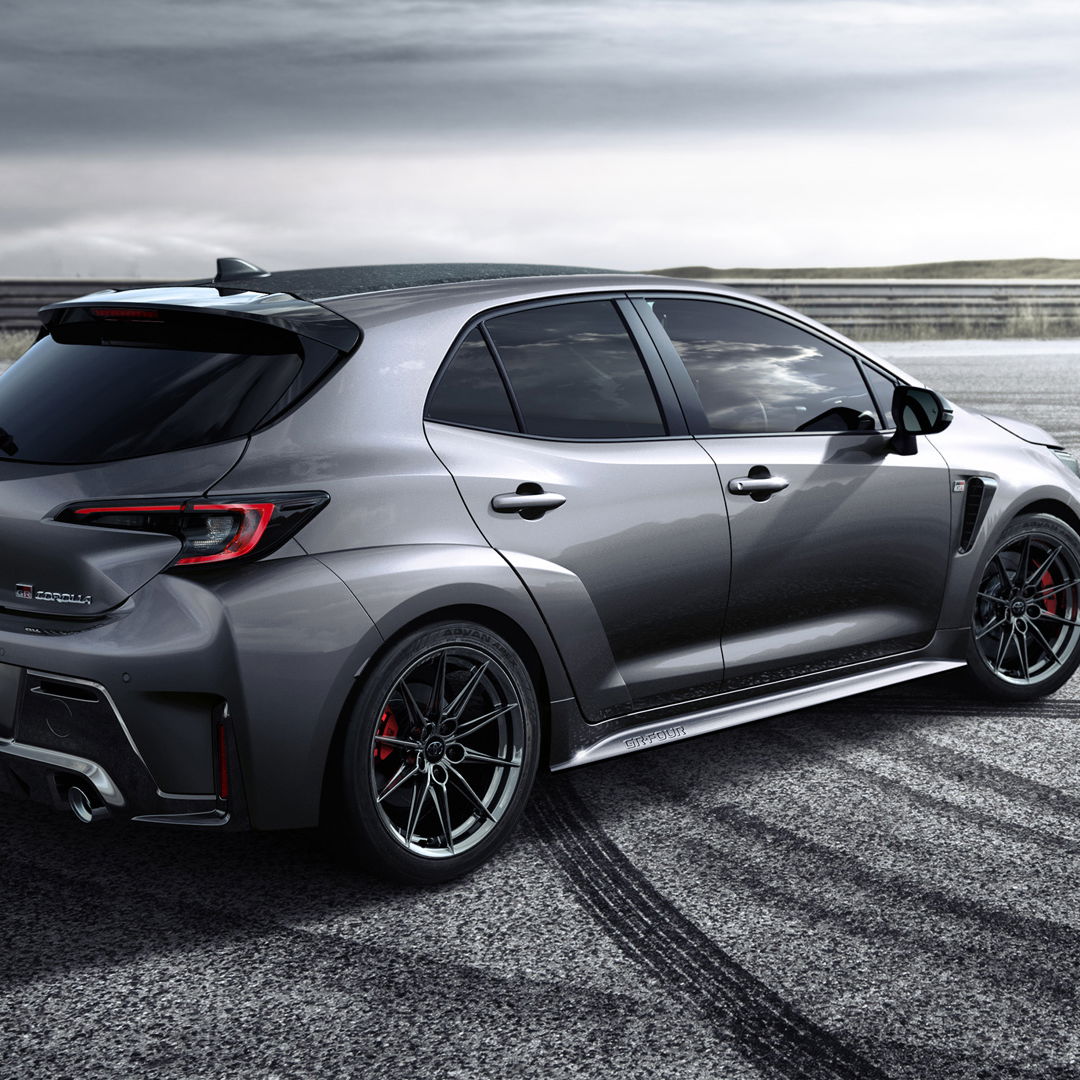
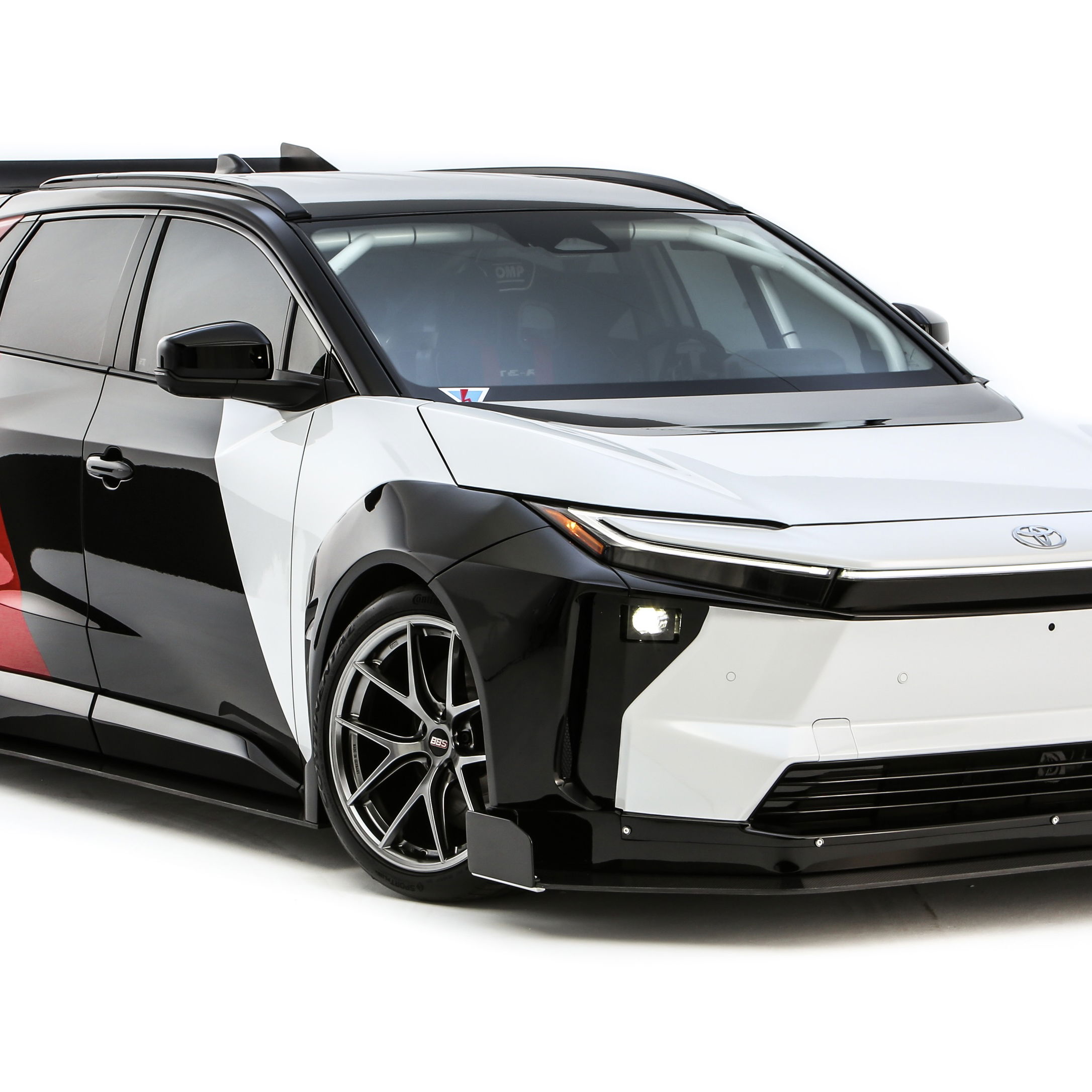
Comments
“A set of Osram H4 bulbs cost £17.90” Hmm, the most overpriced lightbulbs in existence.
New staff writer, or just a CarThrottle employee? Nice to see a new name on here.
Well, as you may imagine, I am the biggest fan of this story around :D Good luck, Antony! Once the Paseos are up to the task of running smooth and reliably, they’re really fun to drive. Such a shame it has always been overshadowed by the Celica.
You’d pay 5000-6000 pounds for one like it in denmark and a yearly tax of the 400 pounds you paid for the car. there is only one single car like it on offer on the biggest online car market in denmark and it goes for 5570 pounds.. its a cabriolet though.
The only Paseo i’ve ever seen was one airbrushed with an Itasha livery. Very well done. One of the best Itasha cars i’ve seen so far.